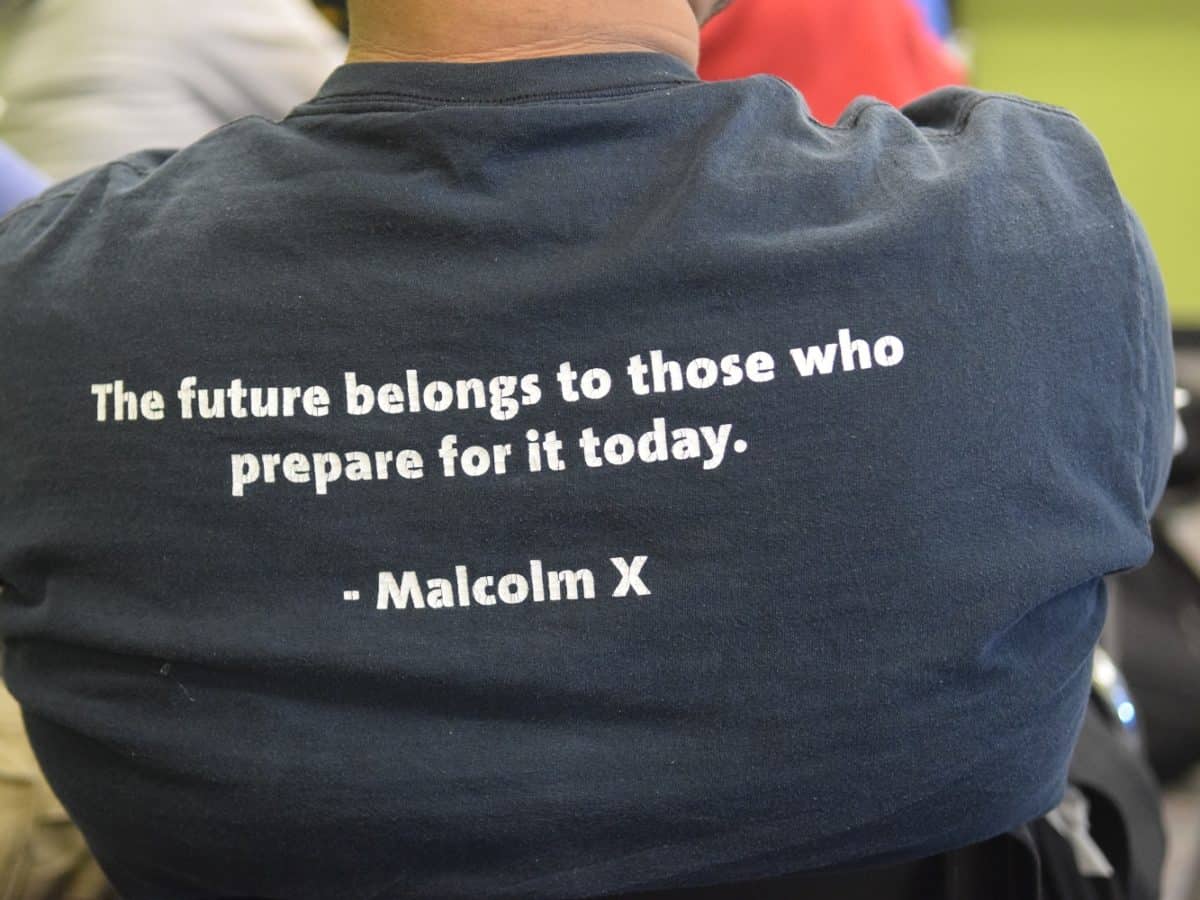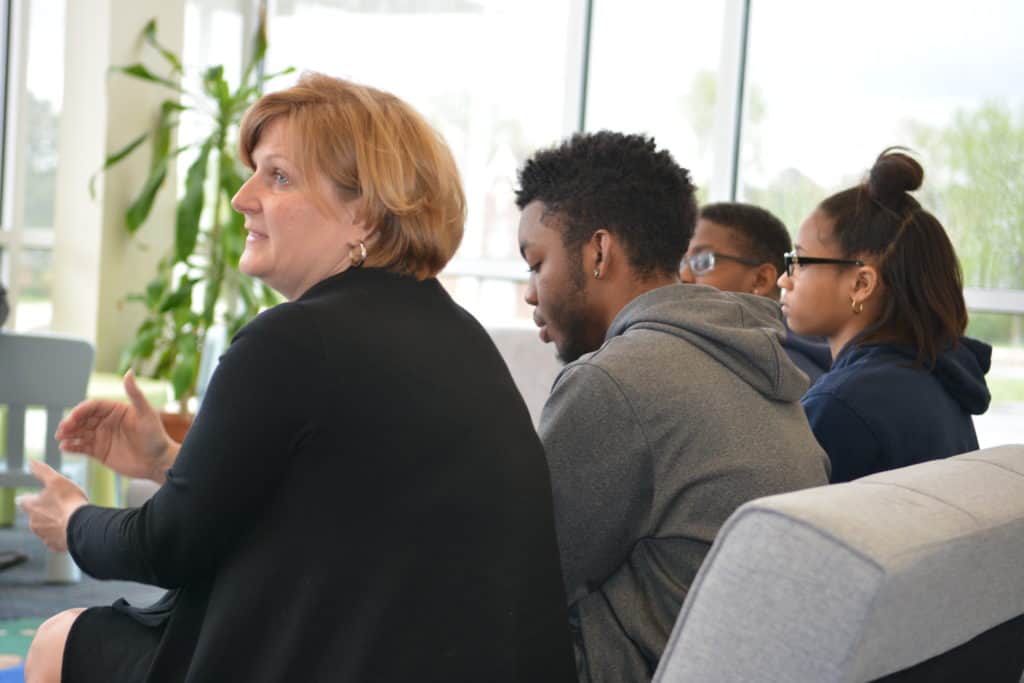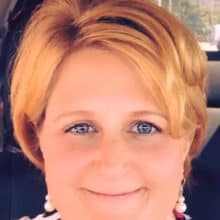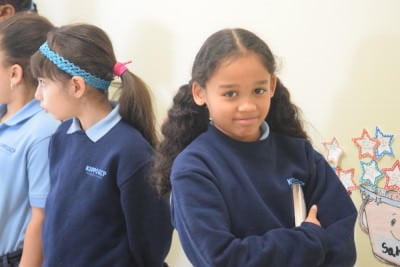

Instead of asking a person of color to explain race, privilege, systems of power, or oppression, we can read one of the hundreds of books or articles available to us.
When we are in a conversation with other white folks (friends, family, or strangers), and we hear racist language (often masked as jokes or begin with, “I’m not racist, but,” or “I don’t mean to be offensive,” but), we can address it.
If we find ourselves in meetings, board rooms, selection committees, classrooms, councils, or any spaces without the voices of people of color, we can advocate for equity and diversity.
If we are in any of those spaces with a person of color, we can refrain from relying on them to be the sole voice about race, equity, or inclusion.
We can stop thinking it’s a good thing to be “color blind.” We aren’t. Instead, we can remember it’s good to see the beauty of color AND all the ways that those who are black or brown are treated differently. We can see it, acknowledge it, and work to fix it.
We can be proximate. We can form genuine connections with communities and individuals who look different from us. The closer we are, the better we will begin to understand.


Instead of believing that only horrible people are racists, we can realize that all of us are capable of saying and doing harm, intentionally or unintentionally.
If someone provides us with feedback about a comment we make, we can stop ourselves from firing back with a defensive explanation or an attempt to justify it. We can just listen and learn and say, “Thank you for making me aware.”
When we are made aware of our harmful words or actions, we may feel hurt, but those feelings are ours to own. We are not the victim. We cannot allow our tears to overshadow or eclipse the hurt we inflict on another.
Anytime we hear someone white say they are tired of hearing about race, we can remind them that black men and women are tired of having their brothers, fathers, and sons murdered.
We can teach our white children, nieces, or nephews how to be allies and how to do what’s right, especially when it’s difficult or inconvenient.
Anytime we find ourselves in a situation where we are the minority or where we are uncomfortable or where we feel unsafe or where we feel judged, instead of simply fleeing from it, we can remind ourselves this is how many people of color feel all of the time. We can sit in that for awhile.
If we have “a black friend” or a black spouse or black children or grew up in diverse communities, we can remember that we are not immune to the culture of racism in America. We all have to keep learning and putting in the work to be anti-racist.
We can examine our friend group. Who do we invite to dinner? Who was in our wedding party? Who do our children have over for play dates? What does our congregation at church look like? Who are our friends on Facebook? Who do we follow on Instagram? Outside of work, what meaningful relationships have we created with people of color? Where are the women and men of color in our lives?
We can remember that privilege occurs every time we think something isn’t a problem just because it doesn’t affect us personally.
We can be on the look out for loaded words in our speech and out of the mouth of others. We can call out white folks who talk about black coworkers, neighbors, or strangers as aggressive, intimidating, not a team player, or hard to work with. We can reflect on the identity of the person using these descriptions and how those terms are drenched in stereotypes and carry so much weight.
And while we may have grown up poor, overcome tremendous hurdles, and suffered terrible disasters, we will still never know what it feels like to be black in America, and we can’t try to equate the two.
When we hear “Black Lives Matter,” we can stop ourselves or others from misinterpreting that as being anti anyone else. Black lives matter, too!
We can help others understand that the riots and the protests are not about fighting against police.
The fight is against racism.
Because we are not personally experiencing the effects of 400 years of legalized and institutionalized racism, we should refrain from telling people of color how they should feel, mourn, react, protest, act, or behave.
We can choose to do the work to understand the historical roots of racism and the systems that resulted (and that we continue to benefit from today).
After doing the readings, recognizing our inherent privilege, having conversations about race, and being open to feedback, we can refrain from responding with, “Now I feel so guilty,” or “I just feel so bad.” These words put the person of color in a position of comforter. This is often the point when genuine conversations about race are silenced or stopped. We can’t be fragile. There is too much to undo and so much work that needs to be done.
We can choose to make this a more just world for everyone. Because if we truly believe that all lives matter, then we will do everything in our power to make the “all” is actual and not aspirational.
We can stand up. We can use our voice. We can do better.


